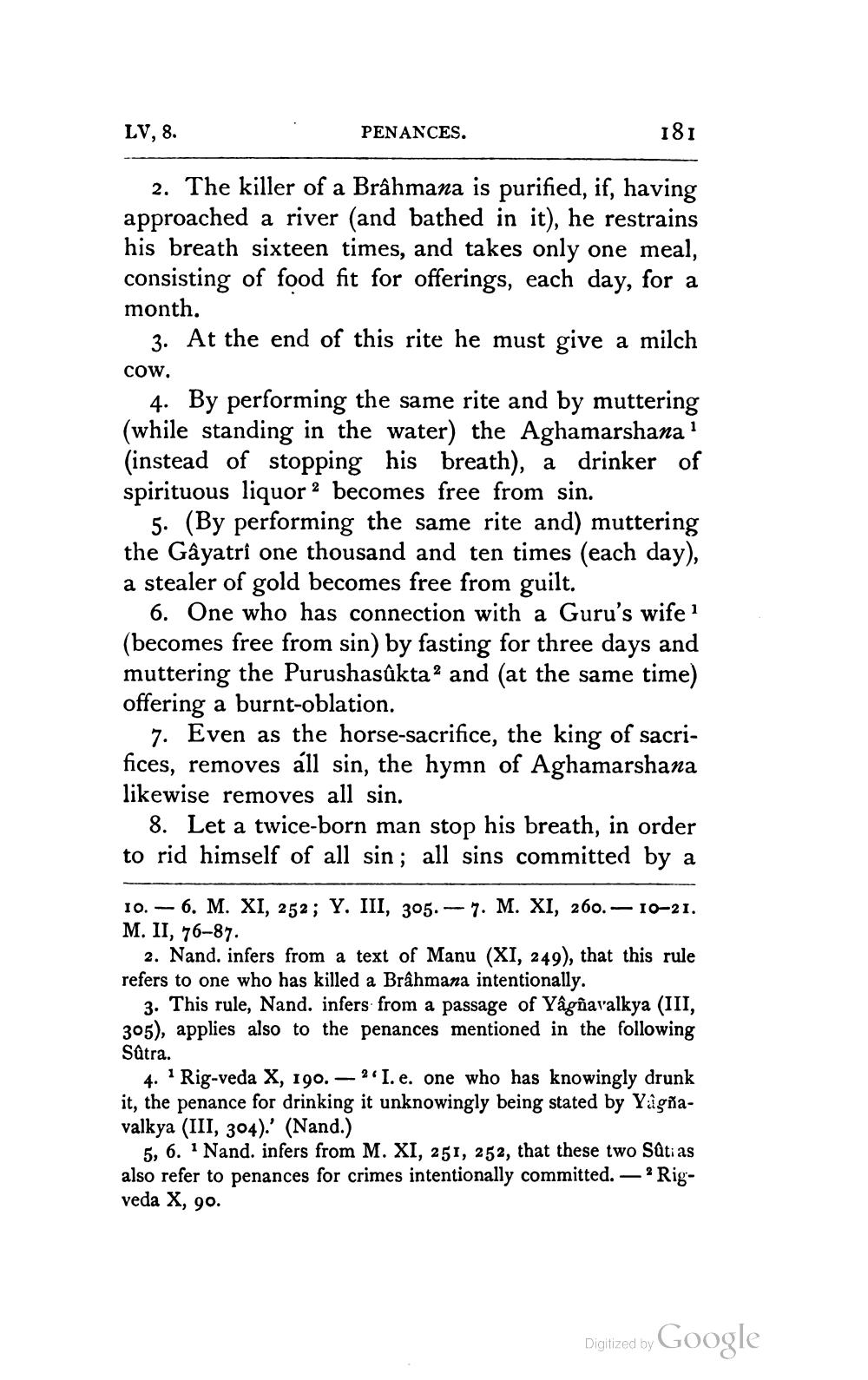________________
LV, 8.
PENANCES.
181
2. The killer of a Brâhmana is purified, if, having approached a river (and bathed in it), he restrains his breath sixteen times, and takes only one meal, consisting of food fit for offerings, each day, for a month.
3. At the end of this rite he must give a milch cow.
4. By performing the same rite and by muttering (while standing in the water) the Aghamarshana i (instead of stopping his breath), a drinker of spirituous liquor a becomes free from sin.
5. (By performing the same rite and) muttering the Gayatri one thousand and ten times (each day), a stealer of gold becomes free from guilt.
6. One who has connection with a Guru's wife 1 (becomes free from sin) by fasting for three days and muttering the Purushasûkta’ and (at the same time) offering a burnt-oblation.
7. Even as the horse-sacrifice, the king of sacrifices, removes all sin, the hymn of Aghamarshana likewise removes all sin.
8. Let a twice-born man stop his breath, in order to rid himself of all sin; all sins committed by a
10. – 6. M. XI, 252 ; Y. III, 305.—7. M. XI, 260. — 10–21. M. II, 76-87.
2. Nand. infers from a text of Manu (XI, 249), that this rule refers to one who has killed a Brâhmana intentionally.
3. This rule, Nand. infers from a passage of Yâgñavalkya (III, 305), applies also to the penances mentioned in the following Sutra.
4. Rig-veda X, 190. – 21. e. one who has knowingly drunk it, the penance for drinking it unknowingly being stated by Yågñavalkya (III, 304).' (Nand.)
5, 6. * Nand. infers from M. XI, 251, 252, that these two Sūti as also refer to penances for crimes intentionally committed. — ? Rigveda X, 90.
Digitized by Google




